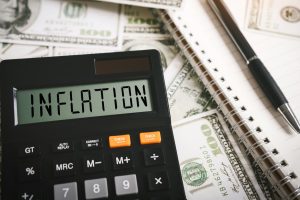
The Chinese real estate sector, long regarded as the backbone of the country’s economy, is going through a disturbing juncture, and the road to recovery seems long and fraught with uncertainties. Last week, China’s Bank of Communications, the nation’s fifth-largest bank, and China Construction Bank, a state-owned banking giant, convened a meeting with property developers to lend a sympathetic ear to their financing concerns.
On the surface, this may seem like a positive step. However, the reality is that many of these major developers are already overleveraged and have defaulted on their bond payments. The looming question is whether lending more money to these developers is a wise decision, or if it’s akin to throwing good money after bad.
The problem has roots in the fact that these companies are already drowning in debt. Piling more debt on top seems like a Band-Aid solution to a deep-rooted problem. The conundrum is that the two most probable solutions — a major stimulus package from the People’s Bank of China (PBoC) or letting the sector fail and reset — seem equally unfeasible.
A significant PBoC stimulus package, although an attractive proposition, appears unlikely. The reason is China’s already high debt-to-GDP ratio. This makes it difficult for the government to pump more money into the system without exacerbating the country’s debt situation.
On the other hand, letting the sector fail and reset would have a catastrophic impact on the economy and the livelihoods of millions.
The real estate sector in China is not just about buildings and land. It’s closely tied to the country’s economic health, impacting consumer spending, job markets, and local government services.
The figures are indeed alarming. Property sales have suffered a decline of about 20% year over year. Property investment has seen a drop by approximately 19%. Furthermore, both S&P Global and Fitch predict property sales will decline by up to another 5% in 2024.
The Bottom Line on China’s Real Estate Crisis
The situation is dire, and 2024 seems to be a year where it may only worsen. The Chinese government’s steps to cool down the housing market to prevent a bubble have ironically led to a crisis, with developers teetering on the brink of bankruptcy due to high levels of debt accumulated over the years.
Systemic risk is very real, and the odds of an extreme decline increase when the starting point of a crisis is high debt. The Chinese real estate sector is currently walking on thin ice.
While lending more money to overleveraged developers doesn’t seem like the best solution, the alternatives, too, are fraught with complications.
On the date of publication, Michael Gayed did not hold (either directly or indirectly) any positions in the securities mentioned in this article. The opinions expressed in this article are those of the writer, subject to the InvestorPlace.com Publishing Guidelines.






